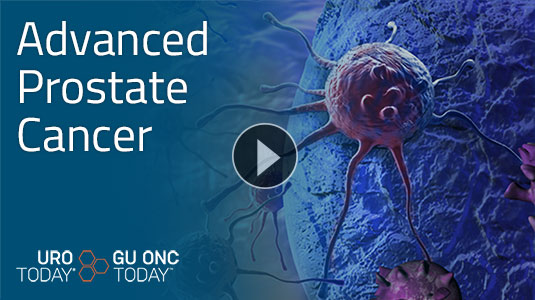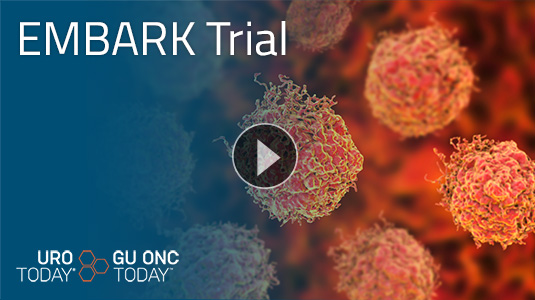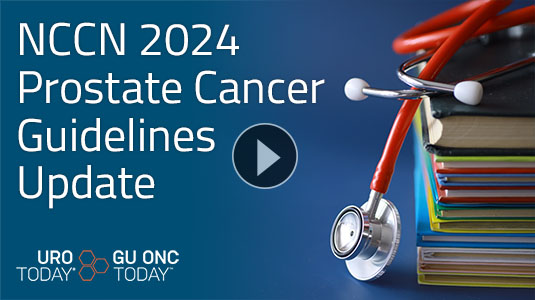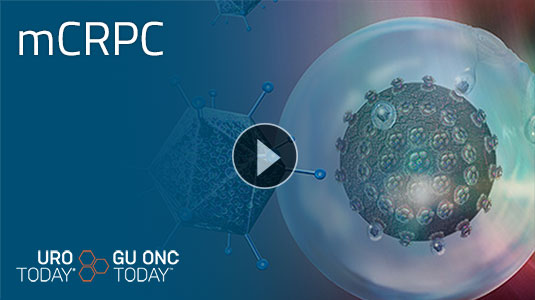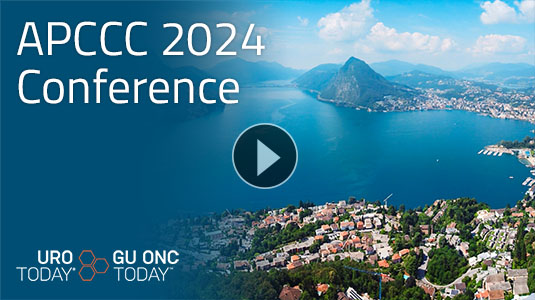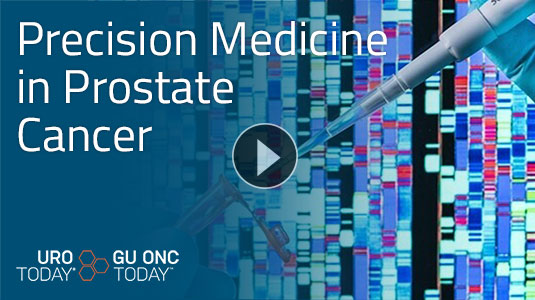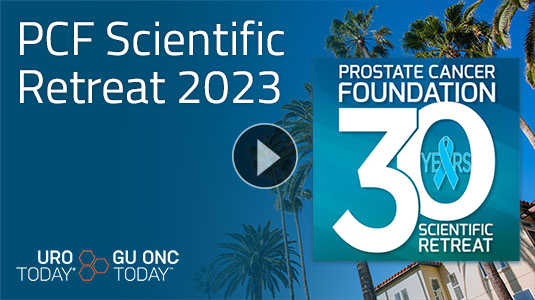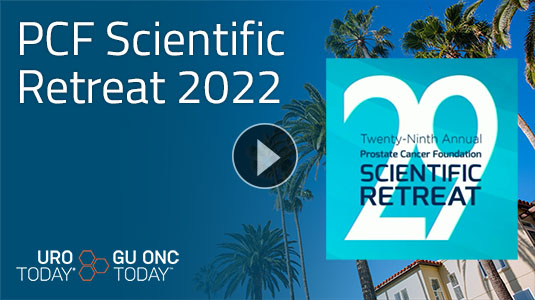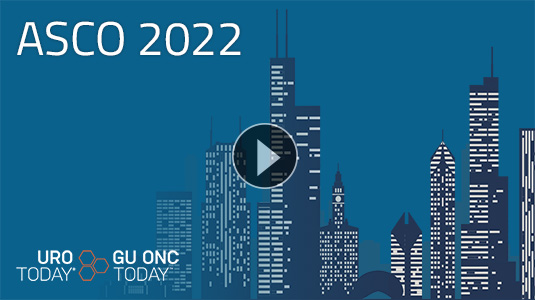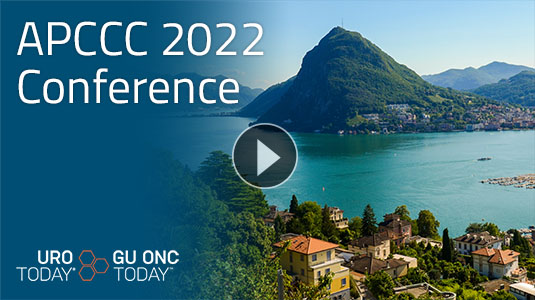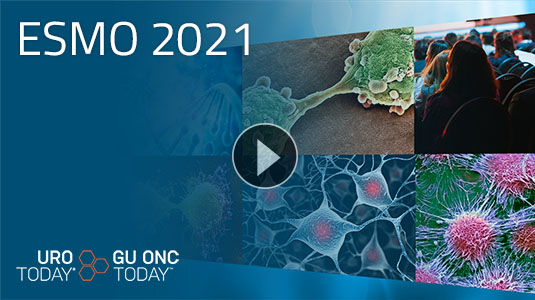- UroToday Home

- Center Of Excellence
Centers of Excellence
The Latest Research on mHSPC
Advancing mHSPC Care: Bridging Research and Practice - A Letter from UroToday's mHSPC Center of Excellence Editor-in-Chief, Neeraj Agarwal, MD, FASCO
Welcome to UroToday’s Center of Excellence on metastatic hormone-sensitive prostate cancer (mHSPC). I am honored to serve as its new editor. This multimedia Center helps audiences in the United States and worldwide stay abreast of clinical trials, real-world studies, biomarker data, regulatory approvals, and expert perspectives on this challenging, dynamic disease and treatment landscape. As therapies for patients with mHSPC evolve, real-world practice has lagged behind. Indeed, five years after the regulatory approvals of novel androgen receptor pathway inhibitors (ARPIs) for treating mHSPC, data suggest that less than half of patients are receiving them in the metastatic hormone-sensitive setting. In this editorial, I cover key data and approvals in mHSPC, what we know about real-world treatment patterns, and how we can narrow gaps between data and practice.
In the United States, the National Cancer Institute estimates that at least 8% of all prostate cancer cases are metastatic when first diagnosed (ie, de novo or synchronous mHSPC),1 and this proportion is higher in regions where prostate-specific antigen (PSA) screening is not routine and thus patients are more likely to be diagnosed only after they become symptomatic.2-4

Neeraj Agarwal, FASCO, MD
Dr. Neeraj Agarwal is a Professor of medicine, and a Presidential Endowed Chair of Cancer Research at the Huntsman Cancer Institute (HCI), University of Utah. He also directs the Genitourinary Oncology (GU) Program, and the Center of Investigational Therapeutics (CIT) at the HCI.
Dr. Agarwal is an internationally recognized physician scientist in the field of genitourinary cancers. He is the overall study chair of multiple Phase I/II and Phase III trials, and serves as a steering committee member of numerous other trials. He has received SWOG Young Investigator Award, the William D. Odell Young Investigator Award, and a National Cancer Institute Cancer Clinical Investigator Team Leadership Award. After receiving his medical training at the All India Institute of Medical Sciences in New Delhi, he completed a residency in internal medicine and a fellowship in geriatric medicine at the University of Iowa, followed by a hematology-oncology fellowship at HCI.
Dr. Agarwal has authored more than 450 peer-reviewed articles and book chapters. He serves as a panel member for the NCCN guideline committees for bladder and kidney cancers. He is an advisor to the Oncology Drug Advisory Committee and the United States Food and Drug Administration, and leads early therapeutics in the SWOG genitourinary cancers committee. He holds numerous scientific communications leadership roles, including chief editor of the ASCO Daily News, specialty editor for ASCO’s cancer.net site, and editorial board member of several journals, including Journal of Clinical Oncology and European Urology. He also serves as a member of the ASCO Genitourinary Cancers Advisory Panel. Recently, Dr. Agarwal was appointed as the Senior Director for Clinical Research, directly reporting to the cancer center director at the Huntsman Cancer Institute.


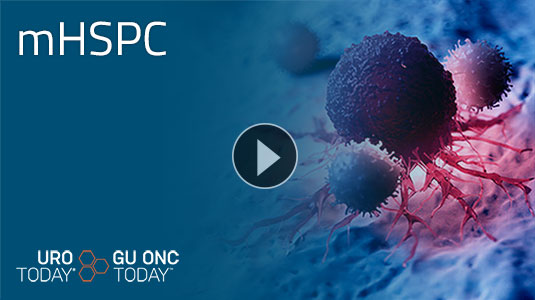
Since 2015, multiple combination treatment strategies have emerged for the management of patients with metastatic hormone sensitive prostate cancer (mHSPC). The addition of docetaxel and/or androgen receptor-axis targeted (ARAT) agents to standard androgen deprivation therapy (ADT), in the form of doublet and triplet treatment strategies, has demonstrated overall survival benefits in this cohort of patients. As such, these drug combinations have changed the standard of care approaches in these men.1
Read MoreProstate cancer, while commonly diagnosed early in the disease state, remains the second leading cause of cancer mortality in the United States and Europe1 . Of the 1.3 million new annual diagnoses of prostate cancer, 6% of men have metastases at the time of diagnosis. Such patients are defined as having de novo or synchronous metastatic hormone sensitive prostate cancer (mHSPC).
Read MoreThe treatment landscape of metastatic hormone sensitive prostate cancer (mHSPC) has evolved rapidly since the introduction of combination chemohormonal therapy with docetaxel and androgen deprivation therapy (ADT) in 2015.1
Read More
The 2022 ASCO annual meeting featured an oral abstract session on prostate cancer, including a presentation by Dr. Ian Davis discussing updated overall survival outcomes in ENZAMET (ANZUP 1304), an international, cooperative group trial of enzalutamide in mHSPC.
Read MoreDarolutamide is a related, but structurally distinct, androgen receptor inhibitor which has demonstrated improved metastasis-free survival and overall survival in patients with nonmetastatic castration-resistant prostate cancer (CRPC). In an oral abstract presentation Dr. Smith presented the first results of the ARASENS trial which examined darolutamide in combination with docetaxel and ADT
Read More


